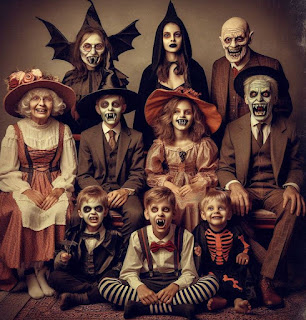A article on dewali
Diwali: The Festival of Lights
Diwali, also known as Deepavali, is one of the biggest and most popular Hindu festivals celebrated across the world. An ancient Hindu festival with its roots in the Indian subcontinent, the festival typically falls in the month of October or November every year. The festival is celebrated for five days with each day having its own significance and customs. The festival is celebrated to mark the victory of good over evil and light over darkness.
The History of Diwali
The history of Diwali dates back to the Hindu epic, Ramayana, when Lord Rama, his wife Sita, and younger brother Lakshman returned to Ayodhya after spending 14 years in exile and defeating the demon king Ravana. The citizens of Ayodhya lit diyas (earthen lamps) to welcome their beloved king as his return symbolized the victory of good over evil.
The Significance of Diwali
Diwali signals the beginning of the Hindu New Year and is a time of family, love, joy, and prosperity. The festival is celebrated across the world by Hindus, Sikhs, and Jains. During the festival, people light diyas, decorate their houses, and offer prayers to the gods. The significance of Diwali is also an apex of the Hindu philosophy that the physical light is a metaphorical representation of spiritual enlightenment.
The Five Days of Diwali
Diwali is a five-day festival that is celebrated with great joy and enthusiasm. Each of the five days has its own importance and significance.
1. Dhanteras: The first day of Diwali is celebrated as Dhanteras. This day marks the beginning of the Diwali celebrations. People buy new clothes, jewelry, and utensils. It is believed that buying gold or silver on this day brings good fortune.
2. Naraka Chaturdashi: The second day is celebrated as Naraka Chaturdashi. People light diyas, draw rangolis, and make offerings to the gods. It is believed that on this day, Lord Krishna destroyed the demon Narakasura.
3. Diwali: The third day is the most important day of the festival. It is the day when Lord Rama returned to Ayodhya after defeating Ravana. People light diyas and celebrate with their family and friends, exchange gifts and sweets.
4. Govardhan Puja: The fourth day is celebrated as Govardhan Puja. The festival marks a celebration of the victory of Lord Krishna over Indra. People prepare and offer traditional food to the gods on this day.
5. Bhai Dooj: The fifth day is celebrated as Bhai Dooj. On this day, sisters put Tika on their brother's forehead as a sign of love and prosperity.
In conclusion, Diwali is one of the most significant festivals celebrated in India and across the world. It is the ultimate symbol of victory over evil, knowledge over ignorance, and light over darkness. It is a time for families to come together, exchange happiness and joy, and create beautiful memories that last a lifetime.



Comments
Post a Comment